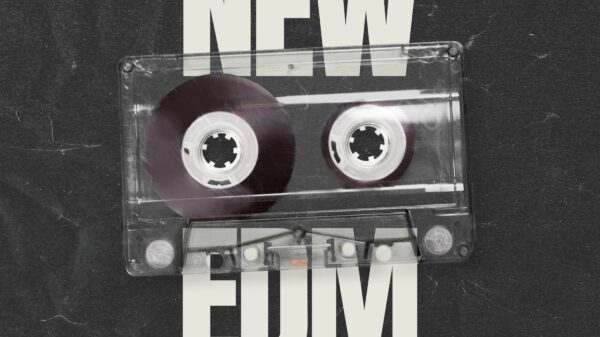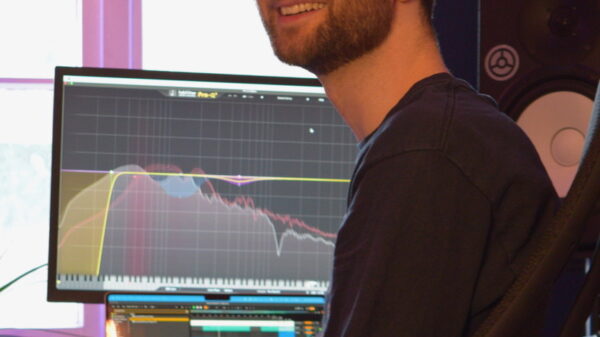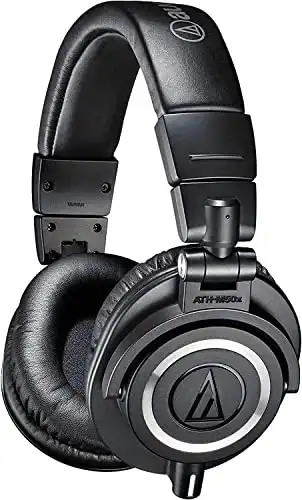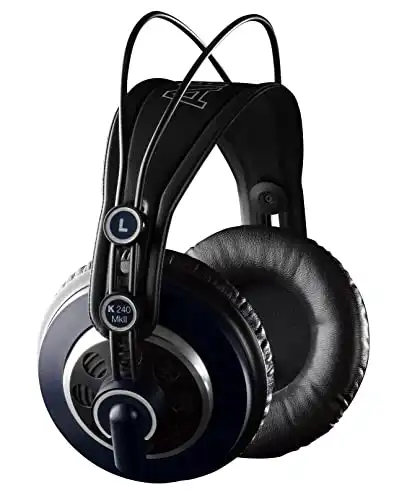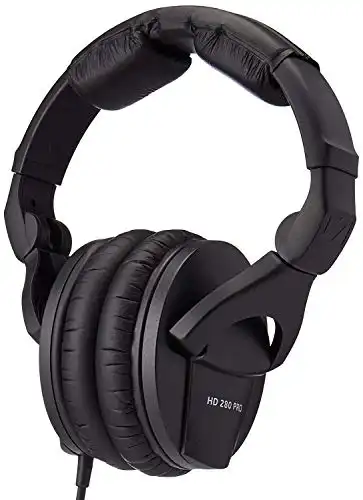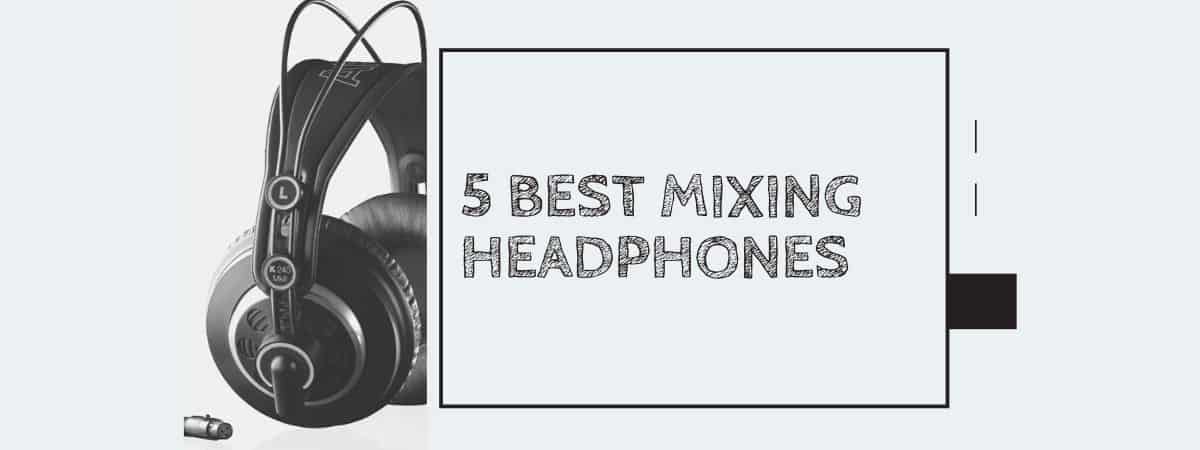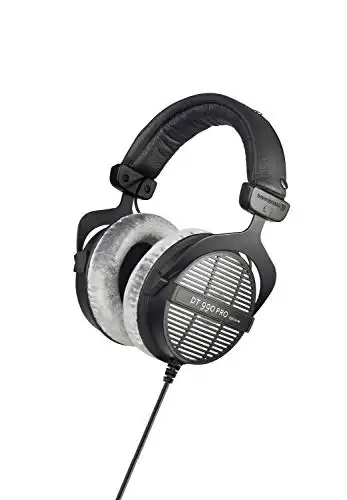Are you in search of a pair of mixing headphones that can help you pull off most tasks associated with music production, especially mixing? In this article, we’ll reveal our top picks for the best mixing headphones on the market today.
|
N/A
|
$79.99
|
$87.00
|
What to Consider Before Buying Mixing Headphones
 Due to the wide range of models on the market, the process of selecting the best pair of headphones for your requirements and budget can be pretty challenging. By taking the following factors into consideration, you help make the process a lot easier on yourself.
Due to the wide range of models on the market, the process of selecting the best pair of headphones for your requirements and budget can be pretty challenging. By taking the following factors into consideration, you help make the process a lot easier on yourself.
Type of Headphones
There are three types of Headphones that you’re going to come across on your quest of finding the ideal headphone model: closed-back headphones, open-back headphones, and semi-open headphones. The following section is dedicated to helping you know the difference between the three types.
Closed-Back Headphones
As you can probably tell from the name, closed-back headphones are models that featured ear cups that are completely sealed. The sound produced by this type of headphones has nowhere to escape from, considering how the padded portion of the headphones seals your ears entirely.
This type of headphones is perfect for producing music in noisy environments, as it’ll help keep the noise isolated so you can experience optimum critical listening. Not only does this type keep you from hearing the noise, but it also keeps others from hearing that which you’re listening to.
One thing you should keep in mind when considering closed-back headphones is that they tend to overemphasize bass frequencies. And since these models seal the sound completely, it’s less likely that you’ll enjoy any wideness or openness of sound when using one.
Open-Back Headphones
While the ear cups on a pair of closed-back headphones are completely closed off, the ones on an open-back model aren’t. To be more specific, the portion of the headphone that’s facing your environment is open, which allows the sound to escape the headphones.
The use of open-back headphones in noisy environments is not recommended since the sound produced by the headphones and the outside noise will tend to leak in and out. This type of headphones is highly recommended for use in quiet Music Production environments.
Semi-Open Headphones
Semi-open headphones, as you can probably tell from the name, aren’t totally opened like their open-back counterparts, they’re somewhere in between the two above-mentioned types. This is a type that doesn’t seal the speaker elements entirely, allowing a slight in and out air passage.
If your music production process takes place in an environment that’s usually noisy, we wouldn’t recommend using a semi-open pair of headphones, as they’ll allow for leakage of sound, though not as much as an open-back pair. With this type, expect a notably natural and clear sound.
Generally speaking, the mixing process requires a quiet environment in order to allow for critical listening, which is why we highly advise you to use a pair of open-back headphones if your main aim is to achieve ideal mixing, as they’re more accurate and better suited for the task.
Ear Cups Positioning
Now that you’ve made up your mind on which type of headphones is best-suited for your needs, it’s time to pick between on-ear and over-ear headphones. Here’s the difference between them:
On-Ear Headphones
On-ear headphones are compact models that are equipped with relatively smaller ear cups than over-head headphones, allowing them to rest on top of your ear. In terms of sound isolation, this type tends to fall short when put head to head with over-ear headphones.
Putting sound isolation aside, it’s crucial to know that on-ear headphones tend to apply pressure onto the ears, which can be fairly uncomfortable for some people. On-ear headphones are ideal choices for people that produce and mix music in quiet environments.
Over-Ear Headphones
Over-ear headphones are models that tend to surround your ear completely, which grants them better sound isolation capabilities. Also, considering how the ear cup goes over the ear instead of on top of it, you should expect a significant deal of comfort from over-ear headphones.
Due to the notable advantage that over-ear headphones have in terms of isolation, they’re way better-suited for mixing in loud environments. On the other hand, these models tend to be a bit larger than their on-ear counterparts, so they don’t shine that well in terms of portability.
Frequency Response
A headphone’s frequency response is the effective range that it can reproduce of qualities such as bass, mids, and treble. There are models that can reproduce sounds at frequencies that are way beyond the frequency range that a human being can perceive (20 – 20,000 Hz)
Sound frequencies that are below 20 Hz tend to be felt rather than heard, while frequencies that are beyond 20,000 Hz tend to be inaudible in most cases. Your goal should be to buy a pair that offers 20 to 20,000 Hz as their response range, which is the standard for most models.
5 Best Mixing Headphones
 AKG K 240 MK II Stereo Studio Headphones
AKG K 240 MK II Stereo Studio Headphones
The AKG K240 MKII is a pair of semi-open headphones that are made from solid materials that ensure outstanding longevity. However, we wouldn’t go as far as labeling them as indestructible. These headphones are fairly lightweight, but not light enough to be suited for portable use.
We love how clear and well-balanced the sound reproduced by the AKG K240 MKII can be. We like how full the bass sounds and we’re also quite pleased with how the highs fall on our ears. In terms of mids, we think that a little more detail could’ve been extremely beneficial.
As far as the frequency response range, we were surprised at how flat it is considering the price of these headphones. We truly believe that finding a pair of headphones that provide such a flat response range at a lower price than that of the AKG K240 MK II is infeasible.
The reason why we think that these headphones are optimal for mixing is that they highlight the inconsistencies in a mix like you wouldn’t believe. What’s more, you can easily pick apart all the components in the mix for better critical listening. All in all, an excellent bang for the buck.
Pros:
- Offers well-balanced sound
- Honest frequency response
- Features solid construction
- Really comfortable to wear
Cons:
- The mids could be improved
- Not suitable for portable use
beyerdynamic DT 990 Pro 250 ohm Over-Ear Studio Headphones For Mixing, Mastering, and Editing
Looking for an affordable pair of open-back headphones that can go head to head with some of the most expensive models out there? Your search ends here, the Beyerdynamic DT 990 Pro is that which you’re looking for. This is pretty much the open-back version of the DT 770 Pro.
These reference headphones feature compact and utilitarian construction. The materials used in building this remarkable piece of hardware grants it a premium finish that we find appealing. The headband is made from metal and the unit features detachable padding for convenience.
In terms of comfort, the DT 990 Pro features plush velour ear pads that offer an excellent deal of comfort, allowing you to wear them for extended periods of time without experiencing any sort of annoyance. Further, the metal headband is well-padded to add to the comfort aspect.
The quality of the mids is superb with these headphones and the high end of the spectrum is full of detail and clarity. Just like a lot of open-back headphones, this pair falls short on sub-bass but makes up for it with an astounding mid- and high-bass quality that you’ll certainly appreciate.
Pros:
- Great mid- and high-bass sound
- Provides a great deal of comfort
- Boasts outstanding build quality
- Reasonably priced headphones
Cons:
- Sound leakage is notably loud
- Can be slightly tight on the head
Audio-Technica ATH-M50X Professional Studio Monitor Headphones, Black, Professional Grade, Critically Acclaimed, with Detachable Cable
The ATH-M50x from Audio-Technica is an extremely popular pair of headphones that combine the convenience of being studio headphones and the ability to be plugged into mobile phones. While these headphones aren’t striking in terms of looks, they offer exceptional performance.
This pair comes with both short and long cables, which grants the ability to use them in and out of your studio. To be more specific, these headphones are accompanied by a cable for portable use and two cables (straight and coiled) for studio listening with a twist-to-lock mechanism.
As far as the sound quality, the ATH-M50x is nothing less than exceptional for its price. This pair offers a notably punchy bass without skewing the sound. The higher end of the mids features an added boost that grants them a fairly bright quality without the need for a large treble output.
In terms of features, we’re sad to tell you that the Audio-Technica ATH-M50x doesn’t offer much. There’s no active noise cancellation, wireless functionality, or an integrated DAC. While this is a pair of closed-back headphones, we wouldn’t recommend its use in noisy environments.
- Critically acclaimed sonic performance praised by top audio engineers and pro audio reviewers
- Proprietary 45 millimeter large aperture drivers with rare earth magnets and copper clad aluminum wire voice coils
- Exceptional clarity throughout an extended frequency range with deep accurate bass response
Pros:
- Offers punchy bass quality
- Highly durable construction
- Extraordinary mids quality
- Appropriate for portable use
Cons:
- Lacks wireless functionality
- Not really neutral sounding
beyerdynamic DT 770 PRO 80 Ohm Over-Ear Studio Headphones in Gray. Enclosed design, wired for professional recording and monitoring
The DT 770 Pro are some of the sturdiest studio headphones on the market, thanks to its metal frame and dense ear cups that can handle mistreatment without getting damaged. We would’ve for the ear cups to have the same premium build of the DT 880’s ear cups, though.
In terms of looks, the DT 770 Pro looks a lot like the DT 990 Pro if it was a closed-back unit. The headphones feature the same removable cushion strap found on the DT 990 Pro. You can wear these headphones comfortable outside, but you should note that they’re a bit bulky.
We feel the need to point out that the DT 770 Pro isn’t the most portable pair of headphones out there, which is also the case for newer models such as the DT 880 and DT 990 Pro. This is due to its bulky build and the fact that you can’t fold the ear cups or lay them in a flat position.
These headphones boast excellent mid-range performance with a virtually-flat response. As far as the treble range, you’ll notice that the sound is a bit too bright and overemphasized. In terms of bass accuracy, we’d say that the bass is reproduced almost flawlessly. Highly recommended!
Pros:
- Remarkable bass performance
- Extremely durable construction
- Excellent stability and padding
- Reasonably priced headphones
Cons:
- Falls short in terms of portability
- Sound leaks at higher volumes
Sennheiser Professional HD 280 PRO Over-Ear Monitoring Headphones,Black
The Sennheiser HD 280 Pro is among the most attractive pairs of over-ear headphones on the market today. We wouldn’t go as far as saying that they’re most durable since they’re made of plastic, but we can attest that they offer a considerable deal of durability and stylishness.
The earpieces can fold up and in, allowing for great portability. Moreover, you can swivel out the ear cups in one direction for convenience. As far as the ear pads, they’re pretty comfortable but over time, you’ll find that they’ll need to be replaced as they’re likely to crumble.
The isolation provided by this pair of headphones is nothing short of incredible, making them an ideal pair to pick if you tend to be in noisy environments while tackling the mixing process. Bass, mids, and treble are all represented in extremely pleasant ways that you’ll find revealing.
The aspect which these headphones fall short on is comfort. The ear cups tend to get too warm and stuffy after a long period of time if you don’t get the right tightness. We can say that this is a pair that’s more comfortable than the ATH-M50x, but not as comfortable as we’d like them to be.
Pros:
- Offers accurate audio performance
- Secure fit for long periods of time
- Gets rid of ambient noise passively
- Highly portable pair of headphones
Cons:
- The cable cannot be detached
- Not the most comfortable pair
Conclusion
We know that picking the right pair of studio headphones for mixing isn’t easy, and we hope that the information provided in this article has given you the needed insight for the task. Let us know which one of the above-mentioned products you think is the best.
Disclaimer: This post may contain affiliate links, meaning we get a commission if you decide to make a purchase through our links, at no cost to you.
More Buying Guides
- Best Analog Synth Under $500
- Best Baritone Ukelele
- Best Bone Conduction Headphones
- Best Bluetooth Amplifier
- Best Camera for Music Videos
- Best Cat Ear Headphones
- Best Ceiling Speakers
- Best Closed Back Headphones
- Best Church Sound Systems
- Best DAW for EDM
- Best DAW for Hip Hop
- Best DJ Controller Under $500
- Best DJ Headphones
- Best DJ Software
- Best DJ Speakers
- Best Earplugs for Concerts
- Best Electric Drum Set
- Best Laptops for DJing
- Best Laptop Stand for Musicians
- Best Production Software
- Best Smart Speaker
- Best Studio Desks
- Best Studio Monitors
- Best USB Audio Interfaces for Recording Vocals
- Best USB C Headphones
- Best Vocal Mic Under $200





